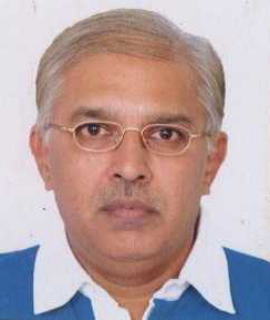ICAM 2023 _ Event Postponement
This is to inform that due to some circumstances beyond the organizer control, “2nd Edition of International Conference and Expo on Applied Microbiology” (ICAM 2023) Hybrid Event scheduled during June 23-24, 2023 | Rome, Italy has been postponed. The updated dates and venue will be displayed shortly.
Your registration can be transferred to the next edition, if you have already confirmed your participation at the event.
For further details, please contact us at applied-microbiology@magnusconference.com or call +1 (702) 988 2320.
Microbial Identification and Contamination
Microbial identification is described as "microbial characterization using a limited set of tests that have been pre-selected and are relevant to the topic under investigation." Identification of microorganisms is a key aspect of the microbiology function. Screening products for undesirable organisms, characterizing the environmental microbiota, and examining out-of-bounds events with the goal of attributing a likely site of origin are all part of this process. An identification strategy is needed when determining what to identify, when to identify it (and to what level), and how to identify it. The goal of microbiological identification is to distinguish one microbial isolate from another so that it can be assigned to a family, species, or even a specific strain.
Infectious organisms such as bacteria, yeast, mould, fungi, virus, prions, protozoa, or their toxins and by-products can be introduced unintentionally or accidentally through microbiological contamination. The main microorganism groups that cause food contaminations include bacteria, fungus, protozoa, and viruses. Bacteria are by far the most important microbial group often connected with food-borne disorders due to their diversity and pathogenicity.
- Biopharmaceuticals
- DNA technology
- Microbial-enzymes
- Microbial identification strategy

Xingmin Sun
University of South Florida, United States
Bing Chen
Memorial University, Canada
Shailesh R Dave
Xavier’s Research Foundation, LCRD, India
Michaela Hostetler
The Ohio State University, United States


Title : Degradation of chitin using chitinase produced from molecular identified bacteria
Afra Mohammed Baghdadi, Jeddah University, Saudi Arabia
Title : Antibiotic resistance of clostridioides difficile
Xingmin Sun, University of South Florida, United States
Title : Metagenomics of the saline habitats of coastal Gujarat, India: Emerging potential for biocatalysis and bioremediation
P. Satya Singh, Saurashtra University, India
Title : Molecular Response Analysis for Lentinus squarrosulus AF5 under Azo dyes Stress: An Integrated Proteome Dynamics and Putative Metabolic Cascade
Anshu Mathur, Indian Institute of Technology Roorkee, India
Title : The necessity for innovative biotechnological solutions for the treatment of dying and textile effluents and their prose and cones
Shailesh R Dave, Xavier’s Research Foundation, LCRD, India
Title : In search of obesity-linked signature gut microbial features and species contributors of reproducible pathway shifts
Deep Chanda, National Institute of Technology, India